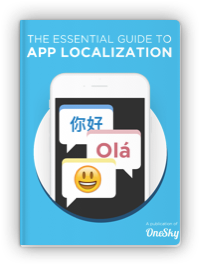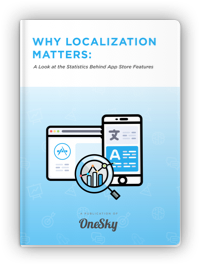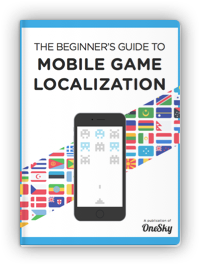What Is a Translation Manager and When Should You Hire One?
Did you know that seven out of ten of the top iOS app download markets and nine out of ten of the top Google Play app download markets are non-native English markets? In fact, China alone accounts for nearly half of all app downloads across both iOS and Android, and $1 out of every $4 generated by iOS and Google Play sales stem from the Chinese market.
Whether you’re expanding into China, Russia, Indonesia, or any other country where English is not the native language, you’d be well advised to translate your website, app, or game into the local language. According to the World Economic Forum, while approximately 1.5 billion people in the world speak English, it’s the first language for fewer than 400 of those people. This means that for more than a billion English speakers, it’s not their native or home language.
Some 40% of internet users won’t make purchases from websites that aren’t available in their native language and 65% of non-native English speakers who have a high proficiency in English would still rather read online content in their home language, even if the quality is poor. Even in Sweden, the country with the fourth-highest proficiency in English among non-native speakers in the world, people prefer to shop online in their native tongue.
What all this means is that translation, and more specifically, localization, are key aspects of a global business strategy. Any business looking to reach and establish a client base worldwide will either need an internal localization or translation manager or outsource that position.
But what exactly does a translation manager do, and why is their job crucial for global success? And how does a company know when (or whether) they should hire one, or outsource localization to a third party?
Keep reading for answers to these questions and more.
What Is a Translation Manager?
As the name suggests, a translation manager plans and manages translation projects, typically in the context of localizing a website, application, or game for new markets.
What many people don’t realize is that true localization is far more complex than simply taking inputting content in one language and directly translating it into another language.
Properly localized content (as opposed to content that is simply translated) takes cultural nuances and associations into account so that it looks and feels completely familiar and natural to the consumer. That is to say that the localized content won’t raise any eyebrows among native speakers living in the content’s target market.
So What Exactly Does a Translation or Localization Manager Do?
In a nutshell, a translation manager’s job involves tasks like:
- Project planning and budgeting,
- Establishing deliverables, timelines, and deadlines,
- Recruiting, contracting, and managing suppliers (translators and reviewers),
- Consulting local specialists,
- Preparing glossaries, briefs, and guidelines for each respective region, and
- Setting up and managing the various workflows involved in delivering high-quality global products for international audiences.
A translation manager will usually work closely with the product manager (and, ideally, the marketing team), flagging any potential cultural taboos, sensitivities, unintended innuendos, or other regional nuances that could negatively impact the brand’s messaging.
With tasks like vetting translators and localization specialists; overseeing a global team; tracking progress across projects; resolving issues and delays; reviewing UI testing, and finalizing the translated content, translation management can be a demanding job. Finding the right person can mean the difference between shipping a beautifully localized product on schedule and dealing with frustrations like bottlenecks and delays.

What Are the Benefits of Hiring a Translation Manager?
Translation can go very wrong when it’s done too literally. There’s a reason professional translation services exist and everyone doesn’t just plug their content into translation software.
A professional translation manager takes the specificities of specific markets into account, applying local phrasing, using the appropriate vocabulary to convey the intended tone, and avoiding unintended double entendres, cultural taboos, and considerations like superstitions attached to particular words or sounds.
A good translation manager can mean the difference between an embarrassing faux pas and making sure your message hits the mark.
Perhaps even more importantly, the translation manager serves as the project manager and team lead for a globally distributed team of experts, keeping tabs on progress and making sure that the various workflows involved in localizing your product are running smoothly and on schedule.
Good translation managers don’t just contract expert local translation services and assure that quality standards are upheld — they’re also proficient people managers and leaders who resolve conflicts, address challenges to avoid delays, and generally ensure that your localization projects run like a well-oiled machine
When to Hire a Translation Manager
Small businesses, as well as companies with basic translation needs or once-off projects, might find that working with freelance translators is easy enough and more cost-effective than hiring a full-time translation manager.
However, when launching a product such as an app or game in a new market or multiple new markets, having an expert translation manager with deep knowledge of localization and all it entails on board is essential.
Armed with powerful translation management software, your translation manager will ensure that your translated content is consistently accurate and of high quality, engaging translators that are native speakers of the languages spoken in your target markets.
If you already have a strong in-house content and/or translation team and/or content manager and/or project manager who you believe is qualified to manage your localization project, you might not need to hire one at all.
It may be that all you need to set them up for success is a powerful translation management platform that helps them to source translation specialists, facilitate collaboration and quality control. OneSky is the leading translation management software for this purpose and even has a Localization Academy to help them become localization experts and hit the ground running.

How to Hire a Translation Manager
Finding a talented translation manager is much like recruiting for any other role, so we won’t bore you with an introduction to recruitment.
What we will say is that for such a specialized role, referrals from your network can be an invaluable resource when hiring. Share the fact that you’re seeking a translation manager via your professional and social media channels like LinkedIn, Slack, Twitter, and other social platforms. Someone you know may have worked with a localization expert or may share your job listing and extend your hiring pool significantly.
If you know of examples of companies or apps that have launched successful localized apps in foreign markets, finding out who managed their translation can be a great way to source talented translation project managers. These may come in the form of freelancers, full-time employees (you may need to do some poaching), or outsourced localization experts. Which option is best suited to you depends on the scope (and budget) of your product.
When recruiting a translation manager, you should make sure that your candidates fulfill the following requirements:
- Is capable of establishing and enforcing rigorous quality standards and creating clear guidelines and briefs
- Has a proven record of successful project management
- Ideally has a portfolio of successful previous localization projects and references or testimonials from existing/previous clients or employers
- Has excellent communication, collaboration, and leadership skills
- Understands the importance of translation being informed by regional and cultural nuances and is proficient at recruiting and vetting language practitioners that are not just translators but local experts
- Understands how to leverage translation management software to make the translation process more efficient
- Ideally has a firm understanding of UX principles and UI design best practices and is capable of reviewing translations in context to ensure that the content contributes to the user experience instead of detracting from it.
- Is comfortable working with other teams like product and marketing to ensure that localization strategy is applied throughout UI design, engineering, testing and QA, and marketing.
While it’s far more important that a translation manager is a proven project manager than a language expert, having a background in linguistics, translation, or another language-specific field is beneficial.
If you’re hiring someone for a once-off/single-language localization project, hiring a bilingual translation manager can streamline the quality review process, but again, this is far less of a priority than management skill, and it becomes a challenge if you want to launch in multiple languages.
Additionally, experience or expertise in product development, technology, gaming, marketing, and/or whatever your specific industry is can be invaluable as this will contribute a more nuanced understanding of your product and translation needs and is likely result in higher quality overall.
What Are the Benefits of Outsourcing Your Localization and Translation Management?
Finding the right translation manager for your localization project can be difficult, time-consuming, and expensive. This is especially true if translation — and more specifically, localization — isn’t your field of expertise and you’re not sure what kinds of questions to ask or what constitutes a high-quality translation (although we hope you’ll find our suggestions useful if that is the route you take).
Some of the benefits of hiring a translation management company include:
- On-demand access to a pool of talented, vetted translators
- Rising above simple translation to true localization, powered by actual locals
- Rigorous quality standards and review processes
- Dedicated teams that unite industry knowledge with linguistic prowess
- Time and money saved through efficiency and subject expertise
- Top-tier translation technology that makes it easy to collaborate and create guidelines and knowledge repositories such as terminology lists
- Scalability that would be difficult to match in-house without building a massive team
Language translation is just the tip of the iceberg when it comes to localization. Beneath the surface, effective translation for websites, apps, and games involves localization strategy, culturalization, localized monetization and game mechanics, localized distribution, as well as on-device user interface testing to make sure that the translated content looks good in the context in which it’s presented.
Outsourcing your localization needs to a company that specializes in managing translation for international markets allows you to focus on doing what you do best — building and innovating your product — without sacrificing the quality of the app you ship to new markets.
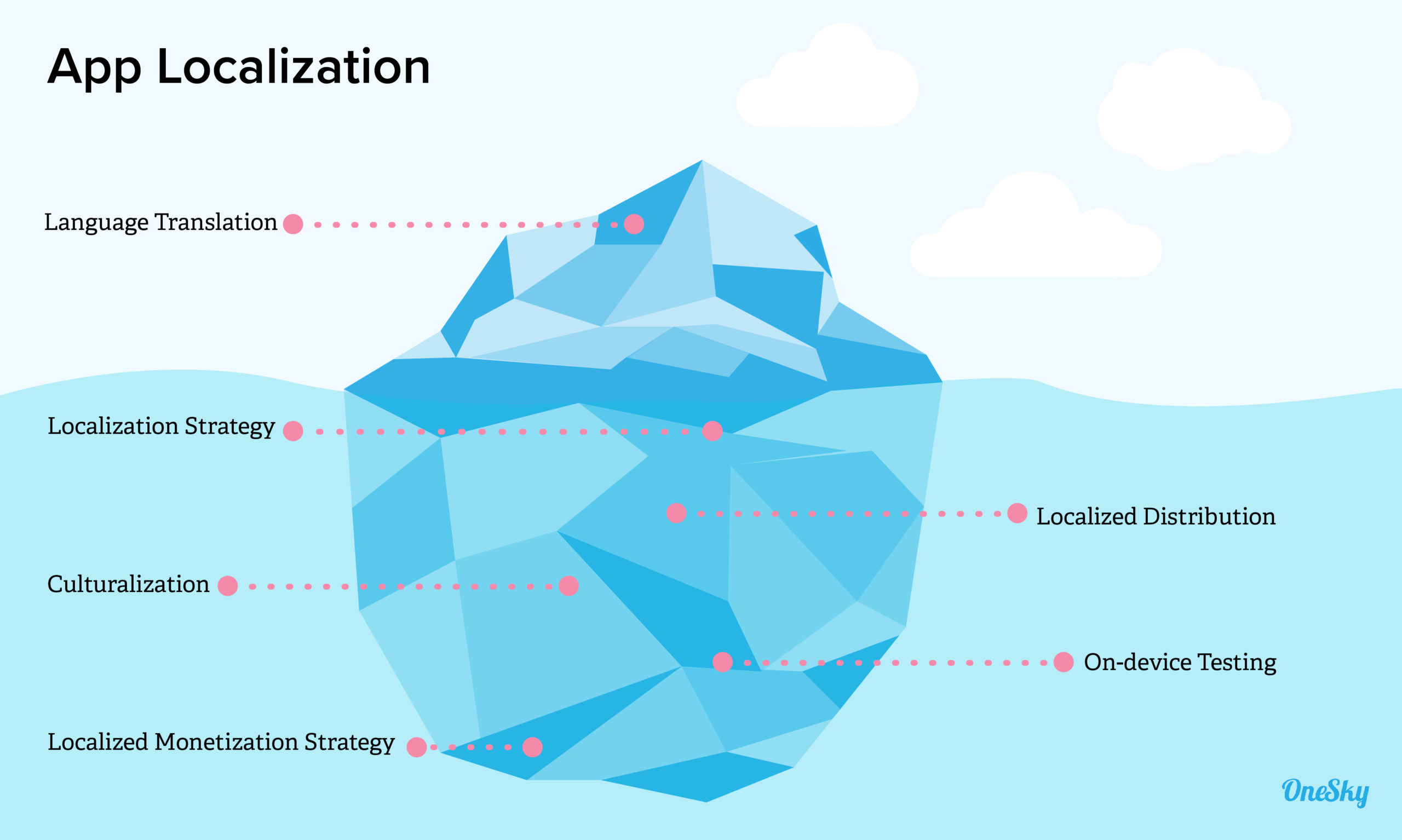
Make Localization a Breeze with OneSky
Using specialized translation management software can make the entire localization project run more smoothly and transform what can be a stressful process into a painless one.
OneSky is an end-to-end content localization platform that makes it easy to coordinate your localization projects — going far beyond simple translation.
OneSky serves as your one-stop localization management system, connecting you with a talented pool of more than a thousand vetted translators with in-country expertise for more than 50 languages. These translators have a wide range of domain knowledge specific to apps, games, and websites.
OneSky supports 19 different file formats and helps you communicate with your translators and manage your translations with change tracking for easy reviews — all in one unified platform, giving you unmatched visibility and control over your localization projects. With its on-device UI testing capabilities, OneSky’s localization goes far beyond simple translation and creates truly intuitive user experiences for every market.
To make things even easier, OneSky offers a managed service with a dedicated translation service, freeing up product teams to focus on what they do best and leave localization to the experts.
Find out why clients like Airbnb, Shopify, HubSpot, Microsoft, UEFA.com, Tumblr, Grab, BMW, Sony, and Ubisoft rely on OneSky for their localization needs.
Sign up for free — no credit card required — and see how effortless managing your translation project could be, from preparation to deployment.
For more information on localization, check out The Project Manager’s Guide To Improving Localization Quality.



 Written by -
Written by - 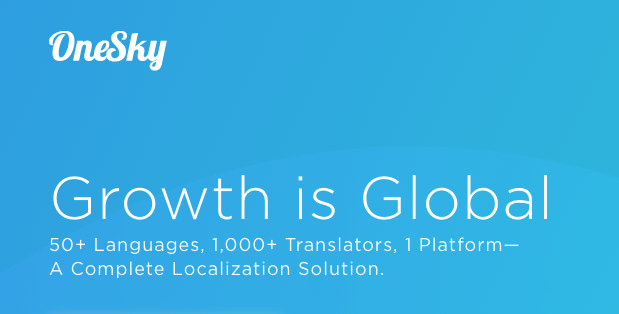

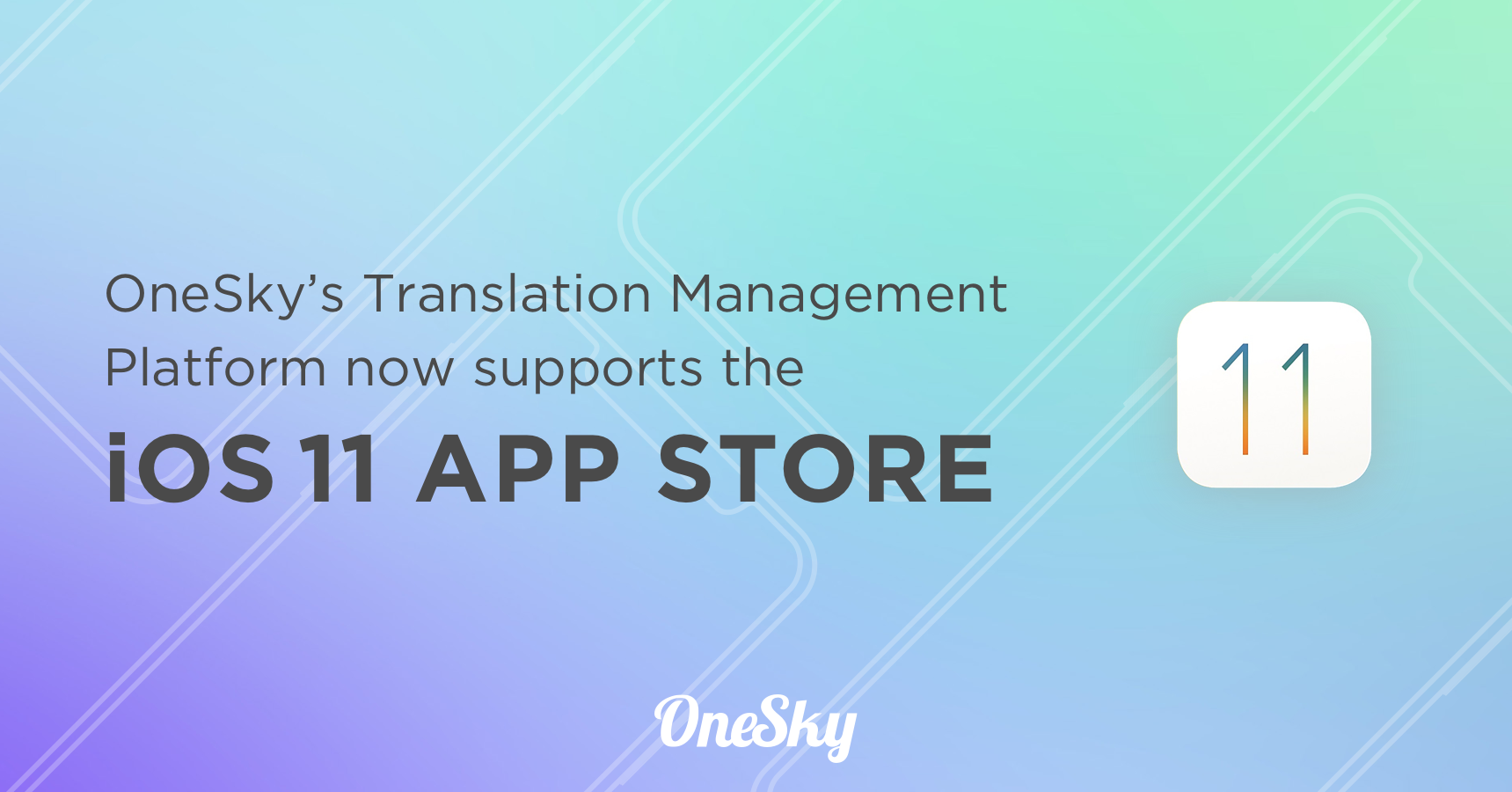
 Written by
Written by 
